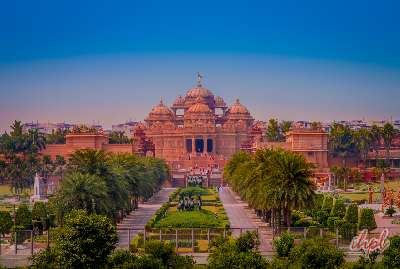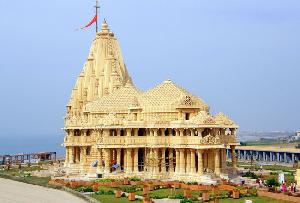The Ashokan Edicts, situated at the foothills of the mountains of Girnar, is one of the major Tourist attractions in Junagadh exuding the religious tolerance of the great Emperor, Ashoka. The inscription speaks of the greatness of the king in matters of secularism and depicts him as a king who encouraged unity and integrity.
History of the Ashokan Edicts, Junagadh:
Etched in a huge boulder, the edicts were founded by James Todd, but it was much later by 1837 that Rev. Dr. John Wilson who made them properly known to the world by copying the edicts and in 1843 they were enlisted in the Bombay branch journal by the Royal Asiatic Society.
Description of the Ashokan Edicts, Junagadh:
With roots around 250 B.C, the Ashokan Edicts, Junagadh, fourteen in number, are extremely valuable assets of India’s rich cultural past. The edicts of Ashoka have been scripted in Brahmi in Pali language and engraved into large granite stone give and spread the word of Ashoka’s philosophy to the world and thereby convey and propagate the word of Buddha to the whole world.
Located at the base of the Girinagara or Urjayata Hill, the boulder bearing the edicts of Ashoka placed within a small building at the side of the road established itself at 210 31 N and 700 28 E. The first fourteen edicts here are that of Ashoka and are etched in the eastern side of the boulder. Then later Mahakshatrapa Rudradaman I in 150 A.D and Skandagupta in 450 A.D incorporated their inscriptions describing the dire straits brought about by the destruction of the embankments of Sudarshan Lake by the rivers Suvarna Sikta and Palasini. Of all the monuments and Forts in Junagadh, the edicts of Ashoka carry the philosophy in its weightiest terms.
The Ashokan edicts suggest the philosophical ideas of Ashoka. The emperor, having been emerged as a new person after witnessing the massacre at the Kalinga War, widely spread the word of tolerance, love, and emancipation. Stressing on the importance of religion in the life of every single human being, he urged every person to respect and honor each other’s belief and live in harmony.












